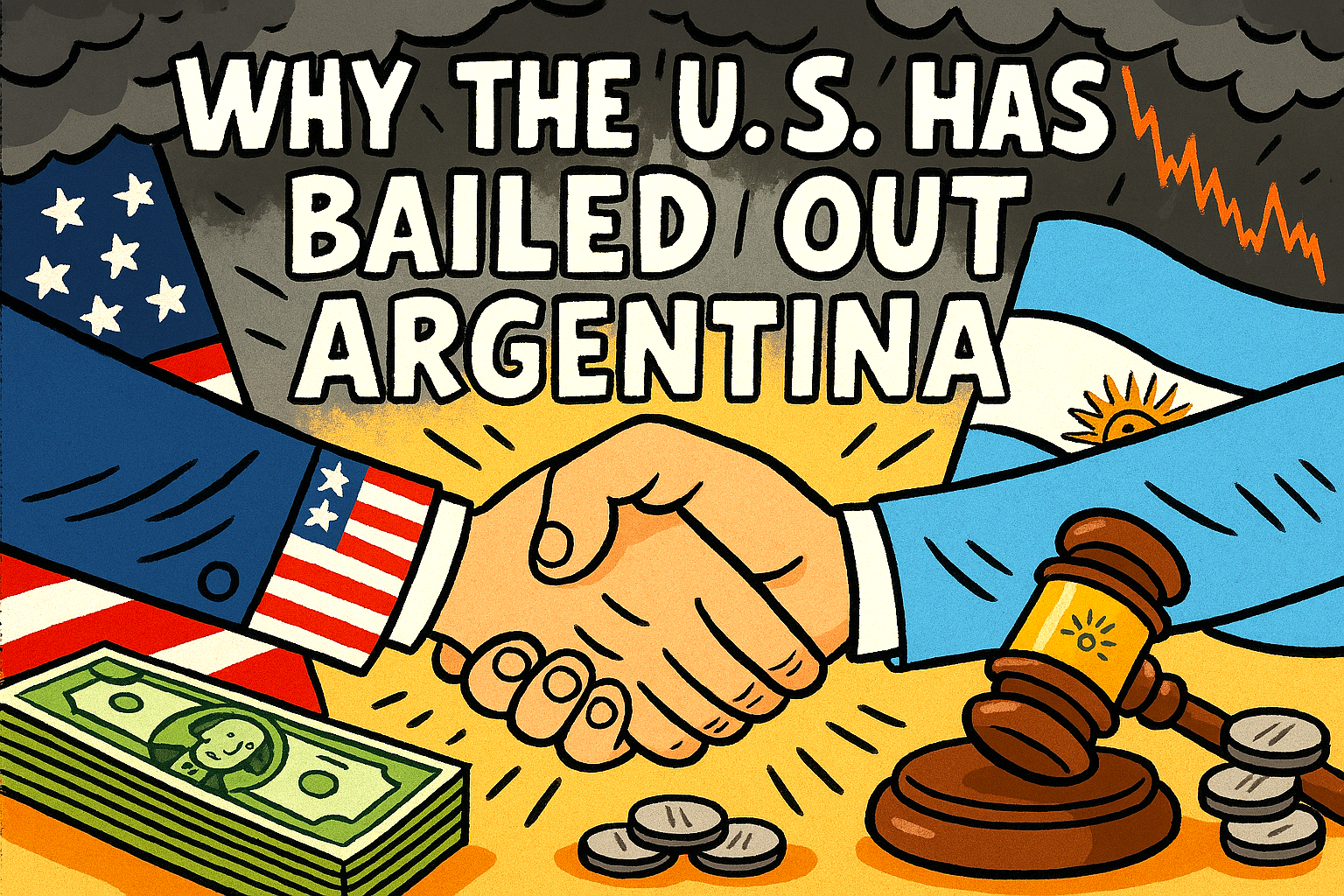In a move that has stunned economists and ignited political debate, the United States has extended a $20 billion bailout to Argentina—a country long plagued by inflation, debt crises, and political volatility.
The lifeline, structured as a currency swap between the U.S. Treasury and Argentina’s central bank, aims to stabilise the peso and prevent a broader emerging market meltdown.
At the heart of the bailout is President Javier Milei, Argentina’s libertarian leader and a vocal ally of U.S. President Donald Trump.
Milei’s radical economic reforms—slashing public spending, deregulating markets, and firing thousands of civil servants—have earned praise from American conservatives but rattled domestic confidence.
Following a bruising electoral defeat last month, Argentina’s currency nosedived, prompting fears of default and capital flight.
Pre-emptive?
The U.S. Treasury, led by Secretary Scott Bessent, argues the bailout is a pre-emptive strike against contagion.
While Argentina poses little systemic risk on its own, its collapse could trigger panic across Latin American debt markets and commodity exchanges.
The swap provides Argentina with desperately needed dollar liquidity, while the U.S. hopes to anchor regional stability and protect its own financial interests.
Critics, however, accuse the Trump administration of prioritising political loyalty over economic prudence.
With the U.S. government itself mired in a shutdown and domestic industries reeling from trade tensions, the optics of rescuing a foreign ally are fraught. Democratic lawmakers have introduced bills to block the bailout, calling it “inexplicable” and “reckless”.
Whether this intervention proves a masterstroke of diplomacy or a costly miscalculation remains to be seen. For now, Argentina has bought time—and Washington has bet big on Milei’s vision of libertarian revival.


